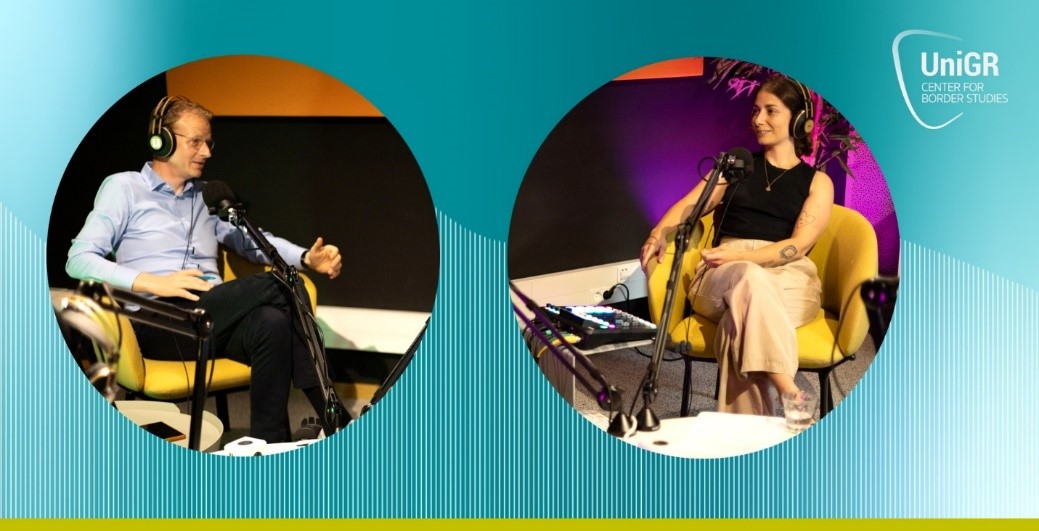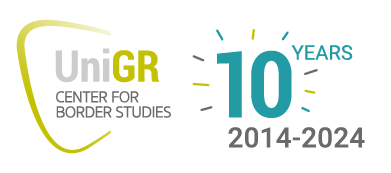In Luxembourg and the Greater Region, borders impact our everyday: social life, economy, trade, culture and education. In 2014, the University of the Greater Region (UniGR), an alliance of seven universities, responded to a growing need in the region for evidence-based research, teaching and outreach on important border questions. The UniGR Center for Border Studies (UniGR-CBS) was called into life, a cross-border research hub of border scholars from the Greater Region.
Since then, the Center has developed research tools and border studies courses, fostered the dialogue on cross-border challenges with socioeconomic actors and supported the spatial development strategy of the Greater Region.
The Coordination Unit of the UniGR-CBS is located at the Department of Geography and Spatial Planning of the Faculty of Humanities, Education and Social Sciences and is headed by Dr Christian Wille.
Congratulations on the 10th anniversary of the UniGR-CBS! For starters, why do we need research on borders?
In today’s world, where there are ongoing territorial conflicts, continuing migration movements, and new global power alliances, borders are more controversial than ever. Borders are not what they used to be, they are not just lines on maps or fortifications that we thought they were. Borders have penetrated all sectors of society and are highly selective. We are now in an era where borders are becoming stronger, taking on new forms, and being experienced more and more by Europeans in the Schengen Area. The members of the UniGR-CBS shape the new era of borders we recently entered through high-level knowledge production and continuous exchange with stakeholders.
What were the research priorities then, what are they now?
In the last decade, the focus of border studies has shifted more and more towards basic research, as it is now increasingly challenged. It is not only in the Schengen area that we are confronted with an increasing hardening of borders since the outbreak of the Covid-19 pandemic. The number of border fortifications is also growing worldwide. However, visible fences, walls, and control practices are only an expression of what border studies is more and more concerned with: powerful techniques of inclusion and exclusion, as we currently know them, for example, from populist discourses, which deeply affect people’s lives.

How did it begin, and what factors contributed to the success story of the UniGR-CBS?
Since its modest start in 2014, the UniGR-CBS has evolved into becoming a strong cross-border research hub that is unique worldwide. In the early 2010s, the UniGR decided to develop more cross-border research collaborations. Thanks to previous projects and informal networks in the region, an interdisciplinary core group of researchers with a shared interest in borders was quickly put together. Therefore, in 2014, the UniGR-CBS started as a loose cross-border network serving as a joint platform for border research in the Greater Region.
Over the years, the Center became a success story thanks to the continuous support of the UniGR and, in particular, to the hard work of the border scholars from our partner universities. Today, it works with renowned international scholars, with young researchers and students in teaching, and with stakeholders on science-policy issues.
Can you name a couple of milestones which benefit students and civil society?
The early days were all about the partners’ pioneering spirit and commitment. They implemented with four UniGR universities today’s well-established tri-national master’s programme in Border Studies, and obtained EU Interreg funding from 2018 to 2022. This was a major driver in our development, as it attracted more border scholars and allowed us to consolidate the research collaboration.The Interreg project was awarded the Interregional Research Award of the Greater Region and in 2022, the UniGR-CBS became the first UniGR Center of Expertise. This change from being a project to a permanent research hub is linked to the ambitious aim to become the leading center in Europe for border research.

